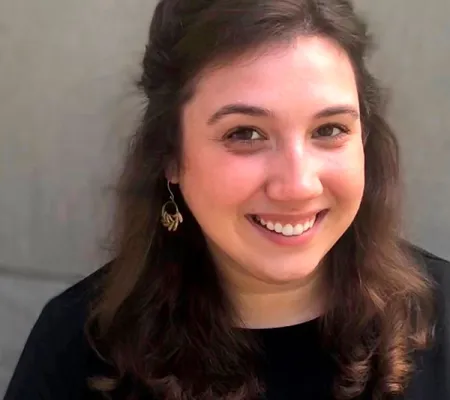UT Art History doctoral candidate Catherine H. Popovici is the 2020–2022 Ittleson Fellow at the Center for Advanced Study in the Visual Arts (CASVA) at the National Gallery of Art in Washington, D.C. CASVA is the museum’s internationally renowned research institute that supports a resident community of distinguished scholars, including three professorships and 18 fellows at any one time, including approximately 15 predoctoral fellows who are conducting research in the field. One Ittleson fellowship is awarded annually to support a dissertation in a field outside of European or American art.
"This incoming class of appointees embodies CASVA's commitment to creating a community of diverse scholars dedicated to the importance of art throughout history—from ancient Sumer to 1970s Manhattan," said Kaywin Feldman, director, National Gallery of Art, in CASVA’s public announcement of 2020–2021 academic year appointments. The National Gallery’s Bulletin publication recently outlined the diverse career outcomes of its predoctoral fellows, attributable to CASVA’s commitment to bringing “conservation, curatorial expertise, and art historical investigation together.”
As the 2020–2022 Ittleson Fellow, Popovici was awarded a fellowship to travel abroad when it is safe to do so to complete her doctoral research. Beginning September 2021, she will be in residency at the Center in the advanced stages of her dissertation, “Stones of Statehood: Art, Politics, and Placemaking in a Classic Maya Landscape.” Her research, advised by UT Art History Professors Julia Guernsey and David Stuart, explores how sculpture beyond the urban center, situated in the landscape, became a crucial component of Classic Maya ritual and kingship. By utilizing a suite of sculpture placed in the mountainous valley surrounding the ancient Maya city of Copán, Honduras as a lens, she reframes the communicative role of Maya sculptural programs and considers the kinetic response to sculpture. These sculptures, referred to as the Copán Valley Stelae in modern scholarship, range from uncarved monuments to those incised with lengthy hieroglyphic texts.
Prior to her CASVA fellowship, Popovici’s research has been supported by the John Carter Brown Library, the Yucatec Maya Institute of the University of North Carolina at Chapel Hill, the UT–Austin Mexico Center of the Teresa Lozano Long Institute of Latin American Studies, and the UT–Austin Graduate School. From September 2018 to May 2019 Popovici was the Andrew W. Mellon Fellow of Latin American Art at the Blanton Museum of Art where she curated “Modeled in Clay: Worldviews in Ancient South American Ceramics.” Prior to joining UT, Popovici received a B.A. with High Honors in the History of Art from Smith College and a M.A. in Art History with a focus on Pre-Columbian and Colonial Latin American Art and Architecture from the Pennsylvania State University.


